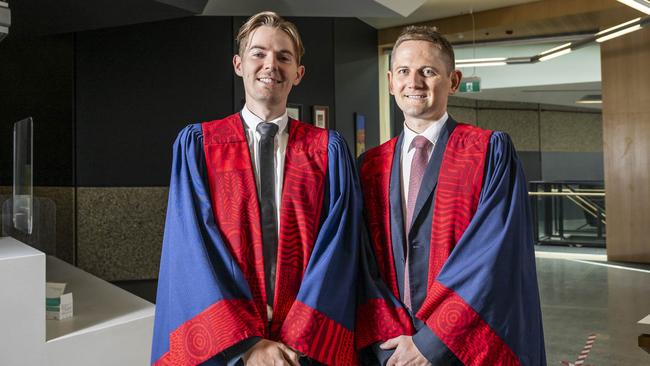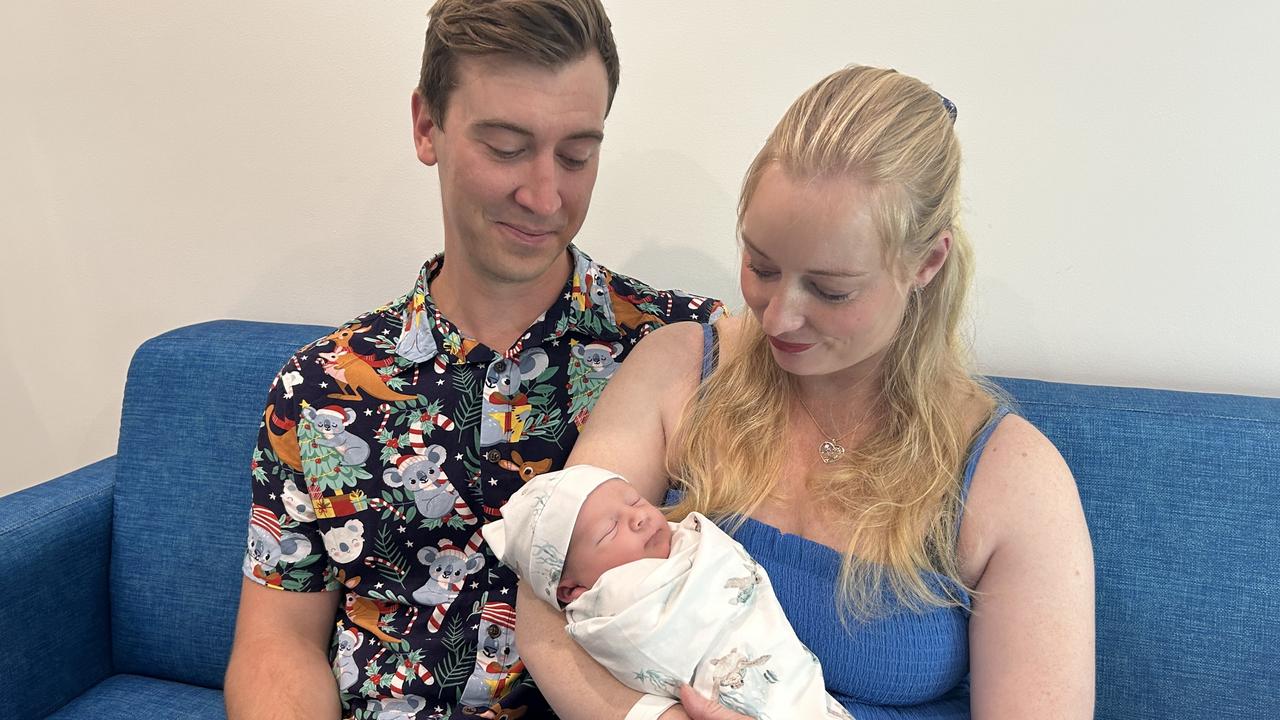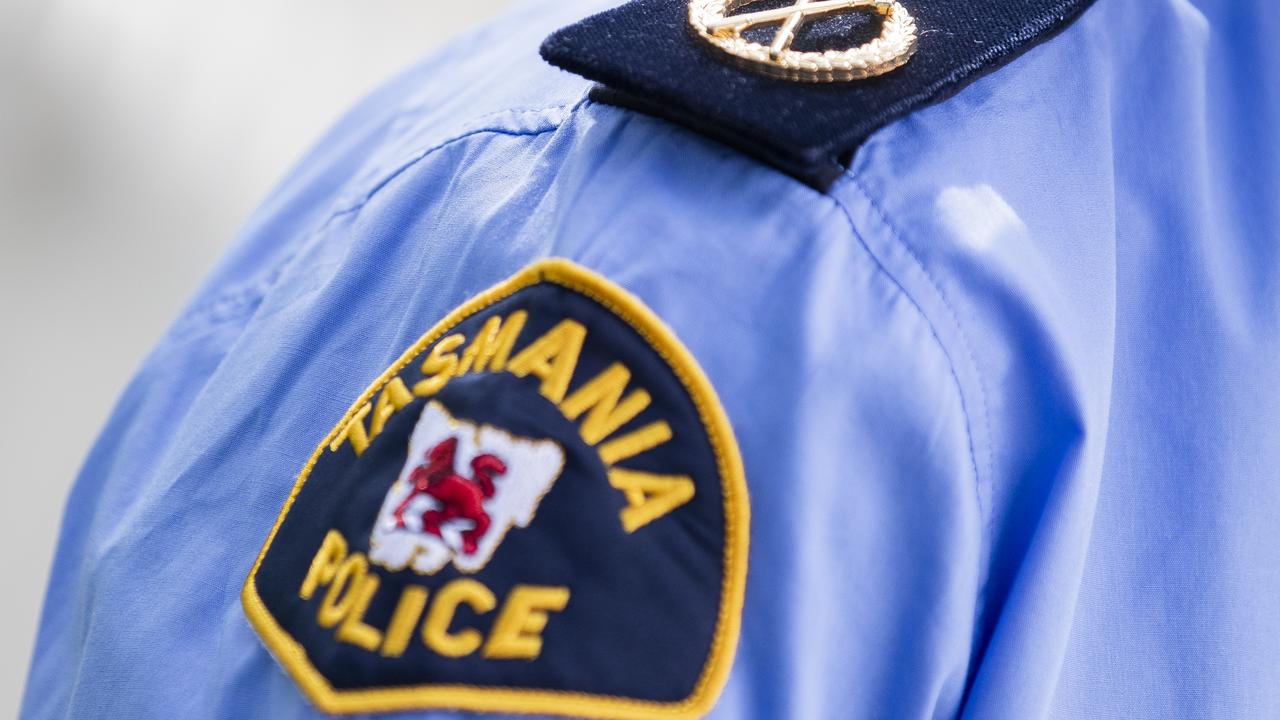It’s hard to find a GP in Tas but 40-newly-qualified specialists are on the way to help
A shortage of GPs statewide will only get worse with the ageing population but 40 new doctors are ready to help. For two newly-qualified Launceston brothers, the job runs in the family.

Tasmania
Don't miss out on the headlines from Tasmania. Followed categories will be added to My News.
When brothers Dr Edward and Dr Charles were studying for their final exams to qualify as GPs, they would meet on Zoom to revise together, one in Sydney and one in Hobart.
“We spent hours and late nights and weekends kind of role-playing to each other with the different general practice questions … it was really nice to do it together,” says Dr Charles, 32.
“Even now that we’re both qualified, we still call each other everyday after work to run through interesting cases and difficult scenarios,” adds Dr Edward, 30, who works in a GP clinic in Annandale, Sydney.
Medicine runs in the blood for the Rose brothers, with both their mother and father practising as GPs in Launceston.

Edward said it wasn’t until the end of high school that he realised the career he’d been so familiar with growing up also appealed to him long term.
“I always felt very protected by my parents, I never had to worry about my health, or medicine, they would help if I hurt my arm or something,” Dr Edward says.
“That’s something I’m hoping that I can provide for my future family, as well as being someone the community can lean on.”
On Saturday, 40 new specialist general practitioners were admitted as fellows of the Royal Australian College of GPs, including the Rose brothers.
With a chronic GP shortage affecting Tasmania, the new doctors have been warmly welcomed by medical clinics around the state and on the mainland.
Tasmania’s ageing population and high burden of chronic illness means the state has a growing and significant need for primary GP care.
Tasmania has around 106 GPs per 100,000 people – well below the national average of 119.
RACGP Vice President and Rural Chair Associate Professor Michael Clements said a GP was vital to the lifeblood of rural communities.
“The fact is, if patients cannot access a local GP who knows them and their medical history, communities become unsustainable,” Mr Clements said.
“The rural barriers to health become too high, and there’s no other type of health support that can offer a substitute for the care of a GP.”
Guy Barnett, Minister for Health, Mental Health and Wellbeing said his government was committed to addressing the shortfall around the state, and would love to see overseas doctors do their mandatory regional years in Tasmania to help ease the burden.
“This includes our $100,000 incentive to attract 40 new GPs to work in our rural and regional areas for five years, our GP NOW Rapid Response Unit of 10 GPs, and our $250,000 grant program for GP practices across the State.” Mr Barnett said in a statement.
Dr Charles, who works at Derwent Valley Medical Centre in New Norfolk, says a career as a GP offers “a life of learning” and a chance to build long-term relationships with his clients.
“It’s a meaningful career, and you’re always with people.”


